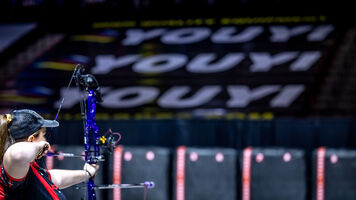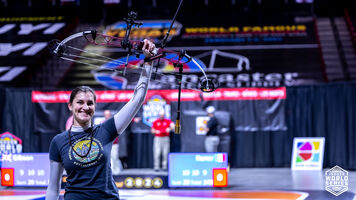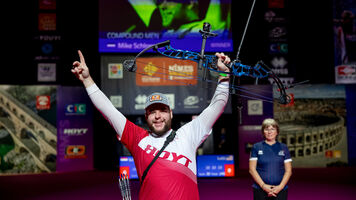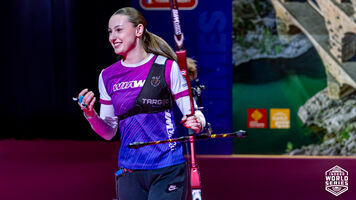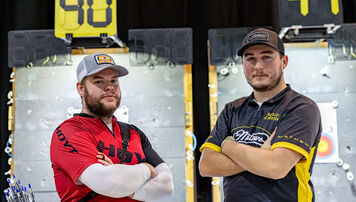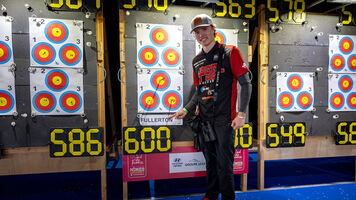How does it work? Indoor Archery World Series Finals rules, explained
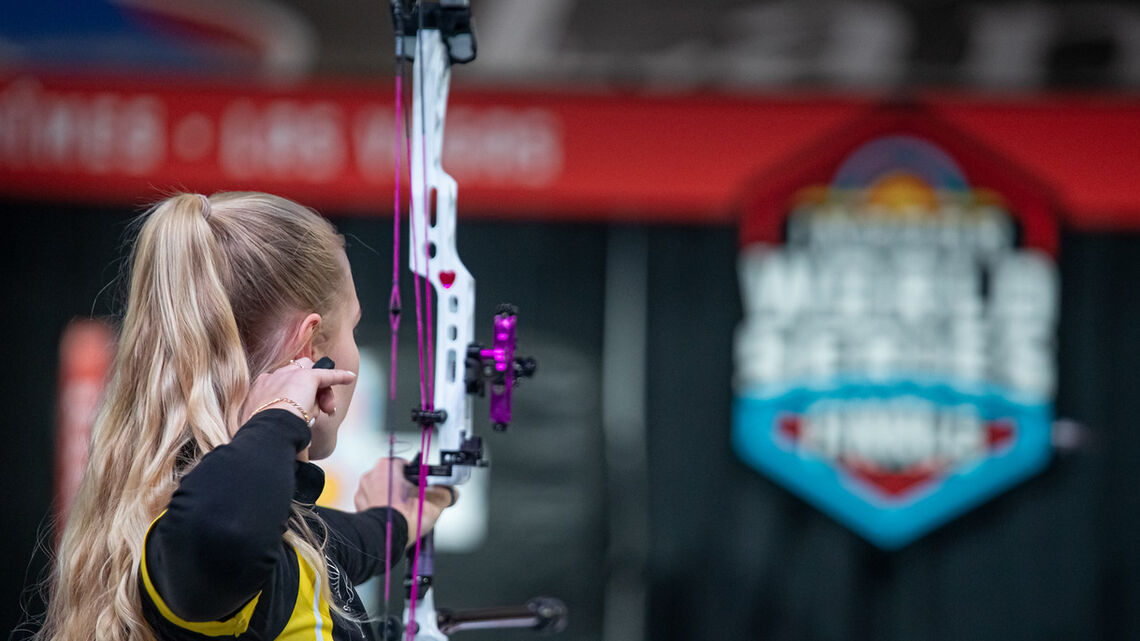
This year’s Indoor Archery World Series Finals are unique.
Not just because it’s a team-only event featuring the top-performing squads from across this jointly virtual-and-live season. It is also using a brand-new competition style developed for this innovative remote tournament. Instead of a pure match format, we’re using ‘games’. Team members will shoot a set of one-versus-one contests ahead of a critical deciding match in which all three archers take part.
Each game is expected to last about an hour.
The semifinals will start at 16h00 CET on Saturday 27 February for the compound teams and 16h00 CET on Sunday 28 February for the recurve teams. The final, between the winners of the semifinals, will start at 19h00 CET on the respective days (after a scheduled hour-long break).
Not only is the format different, but we’re also using the 12-ring that was debuted during the Lockdown Knockout this past summer.
It’s all designed to add strategy to the event. Teams, through their captains, will have to make choices that will significantly impact the results. And, though unusual, this tournament is no joke. World Archery has guaranteed a prize fund of 10,000 CHF.
The World Archery Rulebook will be applied to any situation not covered below or in the official rules for the Indoor Archery World Series.
Competition format
This event is only contested by teams. The rules for team composition on the Indoor Archery World Series are different from other international events. Teams consist of three archers, shooting either recurve or compound bows, and must include at least one man and one woman.
The top four teams in the circuit ranking, which was ordered on each team’s best stage result, qualified places.
The competition is a knockout bracket consisting of two semifinals and a final. (There is no bronze medal match or third-place play-off.) Each head-to-head is a ‘game’. The winner of the game advances and the loser is eliminated until one team is crowned the champion.
Each game consists of four matches: three individual and one team.
One-by-one, the members of a team shoot an individual match against a member of the opposing team. The order in which each team’s members will shoot is submitted in advance in secret. The outcome of these three individual matches adjusts the starting score of the team match. An individual match win earns a one-point bonus and a draw earns one bonus point for each team.
The outcome of the team match determines the result of the game.
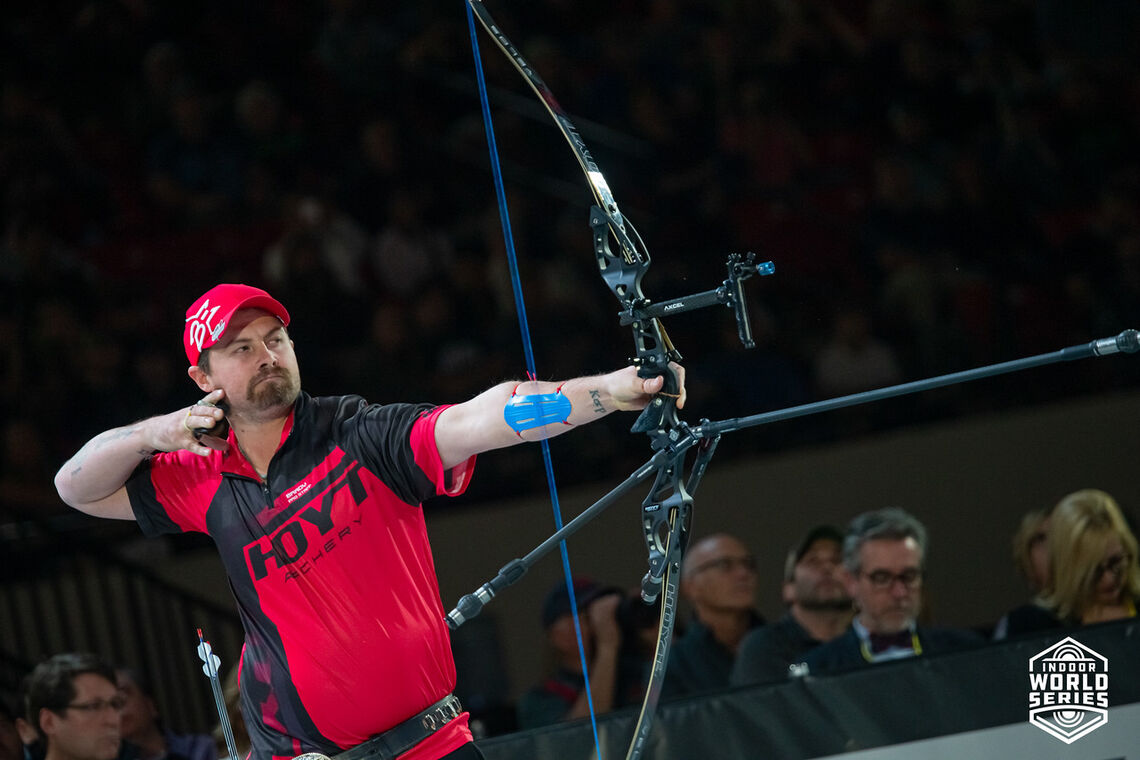
Match format
All matches are decided using cumulative score, where the goal is to finish with the highest total score.
The maximum score in any match is 128 points.
All matches last for 12 arrows, split into four ends of three arrows. During a team match, all three members of the team will shoot one arrow per end in any order and into any of the three spots on the target, as long as a maximum of one arrow lands in each spot. The order can change for each end, but no archer may shoot more than one arrow in an end.
Individual matches can end in a tie.
Team matches cannot end in a tie. If a team match is tied on total score after 12 arrows, then the match is sent to a tiebreak.
Tiebreak format
There are no tiebreaks during the individual matches, as they can end in a tied score. The only tiebreak that can take place is to decide the outcome of the game if both teams are tied on the same score at the end of 12 arrows (and the bonus points).
Each team captain nominates a single archer from their team to shoot one arrow. The team whose arrow lands closest to the centre of the target (in any of the three spots) wins the match and the game. The 12-ring is not in play during the tiebreak procedure.
If it is not possible to identify a winner from the first arrow, the process is repeated until a winner is decided. (The team captain may nominate the same or a new archer.)
It’s an intense way to finish!
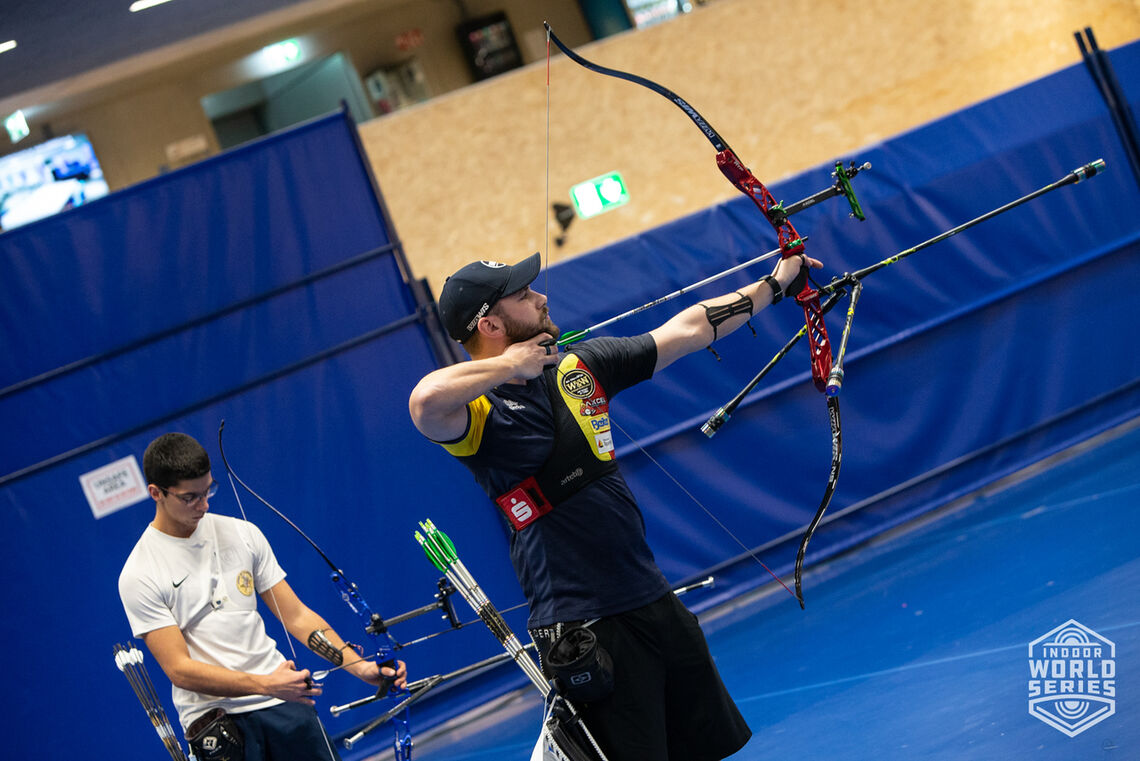
Targets
The targets for this year’s Indoor Archery World Series Finals are variants of the standard triangular triple-spot.
Archers shoot over a distance of 18 metres at a target face measuring 40 centimetres in diameter, with the outer five rings removed, though duplicated into three spots so that each arrow lands in its own target. It’s a traditional five-colour target face with concentric scoring rings. The yellow rings score 10 and nine points, red rings score eight and seven points, and the blue ring scores six points. Missing the target scores zero points
The 10-ring for recurve archers measures 4 centimetres in diameter but the 10-ring for compound archers is halved in size and measures 2 centimetres in diameter.
Each target features one white dot in the red rings of the top spot. It measures 15 millimetres in diameter and is worth 12 points. Archers must raise their hand and say the word “12” clearly before shooting at the dot, otherwise they receive only eight points for hitting it. As each spot on the target can only be shot once per end, the white dot can only be used once per end.
Why these rules?
Believe it or not, using this unique format isn’t just to be complicated.
World Archery is testing how audiences react to the one-hour length of each ‘game’, alongside playing with rules that add strategic layers and choice to the sport, which fundamentally comes down to hitting the middle of a target. It’s not something that can be done easily during normal seasons, but this strange year offers the perfect opportunity.
Last summer’s Lockdown Knockout already saw the 12-ring affect the outcome of a couple of matches and make a few more, which weren’t in doubt, a little more exciting.
This extended trial for the little white dot will expand that sample size – and give a better idea as to whether it’s a worthwhile addition to some types of competition, or just a fad that can be retired to the history books.
The team-only and remote Indoor Archery World Series Finals take place on 27-28 February 2021.





